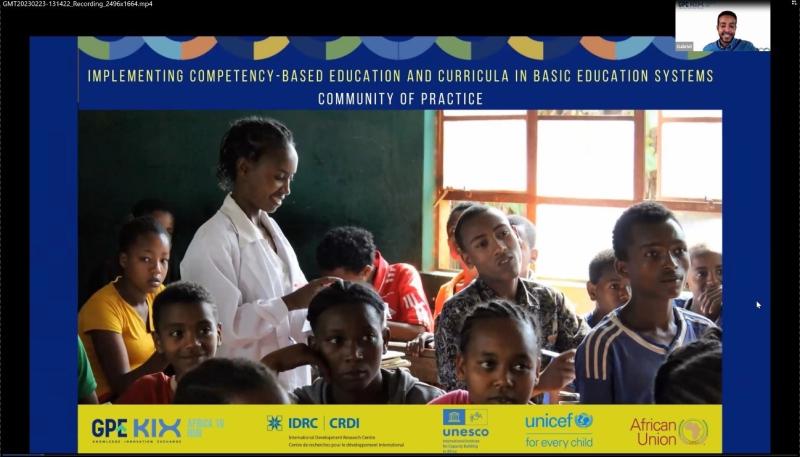
What does national assessment reform entail? What can countries learn from each other’s reform journeys? These were the questions explored on February 23, 2023, by the assessment and curriculum officers participating in a community of practice (CoP) led by the Africa 19 Hub of the Global Partnership for Education’s (GPE) Knowledge and Innovation (KIX), a joint endeavour with Canada’s International Development Research Centre (IDRC). The CoP included members from 19 GPE partner countries in Eastern, Western, and Southern Africa. The CoP members have been studying concepts and good practices in implementing competency-based education reforms in sub-Saharan Africa since June 2021.
The meeting was collaboratively facilitated by UNESCO IICBA and two CoP members: Philomen Sayang, an Education Officer in the Curriculum Directorate of the Ministry of Basic and Secondary Education in The Gambia, and Christine Akello, the Assistant Project Manager of ADAPT (Adapting assessment into policy and learning) at the Global E-Schools and Communities Initiative (GESCI) in Kenya. Participant-led meetings are the norm in the CoP and result in higher levels of ownership and engagement by members.
What are some major types of assessment, and how are they relevant to competency-based education?
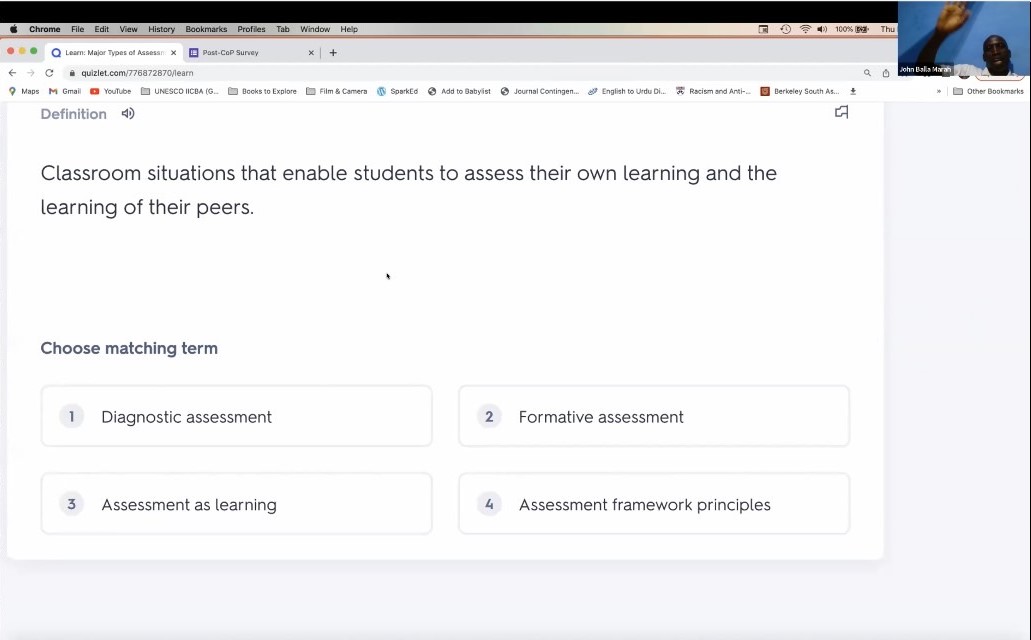 Participants checked their understanding of major assessment types.
Participants checked their understanding of major assessment types.
At the meeting, 16 CoP members (11 women and five men) gathered online to refresh their understanding of assessment types and share national examples of assessment strengthening, especially in competency-based education systems and in the context of policy reform.
As an opening activity, participants took quizzes to check their understanding of various assessment types, including formative assessment, assessment as learning, authentic assessment, project-based assessment, self-assessment, and student-led assessment. These types of assessments are all used in competency-based education to go beyond traditional content-based summative assessments and exams.
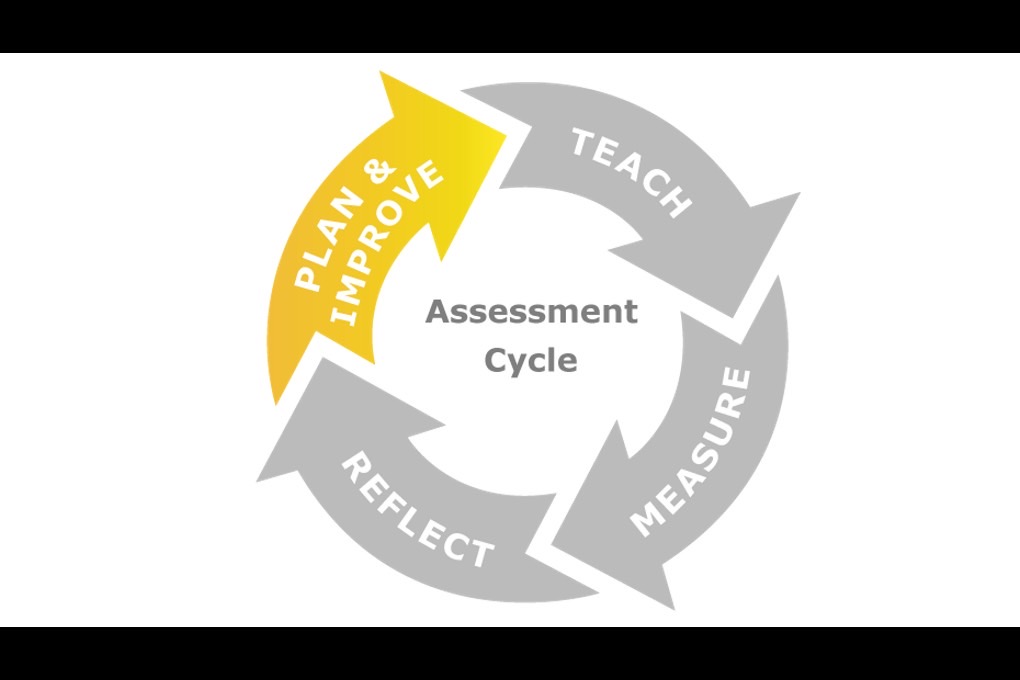 The assessment cycle.
The assessment cycle.
Ms. Maryann Dreas-Shaikha from the KIX Africa 19 Hub at UNESCO IICBA gave a presentation and members confirmed that the assessment has to be a cycle and it is not only for grading or selecting students based on summative assessments such as final exams, but also for improving students’ learning.
Let’s learn from Kenya
The webinar featured two presentations by Kenya and The Gambia. Ms. Anne Wanjiru Ngatia, a Senior Subject Officer at the Kenya National Examinations Council (KNEC) and Coordinator for Competency-Based Assessment in the Kenya Ministry of Education, presented on assessment reform in her country. In her presentation, she stated, “Assessments are critical, especially for measuring competence, because they help teachers know the planning is taking place and when they can move on to the next step.” Kenya shifted its content-based curriculum to a competency-based curriculum in 2018.
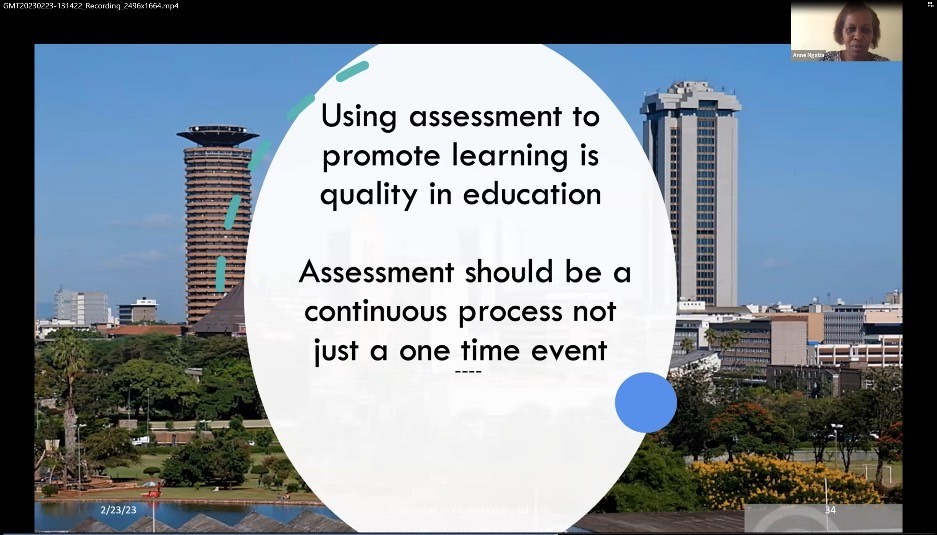 A slide from the Kenyan presentation.
A slide from the Kenyan presentation.
The presentation from Kenya was interesting for participants and contained many key lessons, captured below:
- Competency-based assessments (listed below) are opportunities created for learners to apply knowledge and skills
- Assessment for Learning: is a continuous process of learning
- Assessment as learning: self-reflection and evaluation of their work by learners
- Authentic Assessment: assess the application of knowledge and skills to real-life situations
- Integrated Assessment: assess the ability to tie subjects together rather than studying them in silos
- Inclusivity in Assessment: adopt the assessment for students with different learning needs
- Emphasis on the acquisition of competencies and values and less emphasis on grading
- The use of a variety of assessments tools, projects, portfolios, journals, and ICT in assessments
- The importance of feedback for students’ performance on assessments
How is The Gambia trying to reform its assessment?
At the webinar, Mr. Ansu Sanyang, Head of Assessment at the Curriculum, Research, Evaluation, and Development Directorate in The Gambia Ministry of Education, presented his government’s plan to reform of assessment. He emphasized that “Assessment reform is important because it helps set more appropriate targets for the students.”
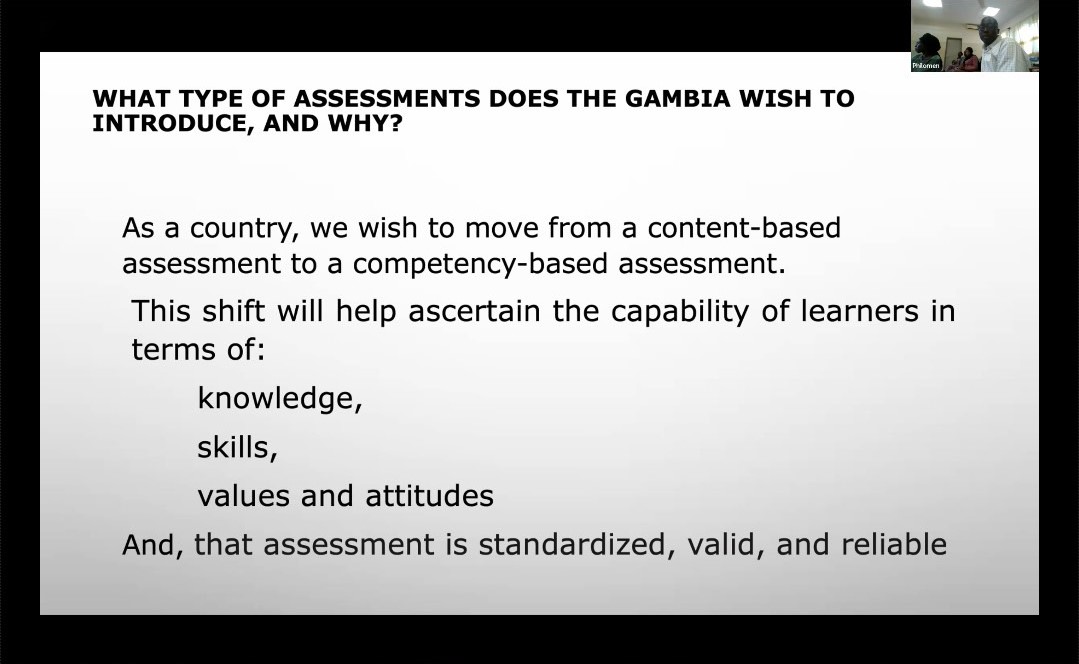 A slide from the Gambian presentation.
A slide from the Gambian presentation.
The Gambia presented their new competency-based curriculum to participants, allowing for a comparison with Kenya's reform process. The key ideas from Mr. Sanyang’s presentation are:
- The Gambia is starting to pilot a new competency-based curriculum at 20 schools with 260 teachers
- The country aims to shift from a content-based curriculum to a competency-based curriculum and from summative assessment centered to formative assessment centered
- In the present assessment system, school cycle certification examinations (one of the summative assessments) decide which students will enter into the subsequent grade
- Reliability and validity are critical problems because assessments are different depending on the school or teacher
- Assessments of the new curriculum focus on the ability to apply knowledge, skill, and attitude development
Q&A session
Attendees asked questions about Information and Communications Technology, inclusivity, and student portfolios. Two attendees advised The Gambia's representative on involving teachers in changing assessments. The representative emphasized the importance of teachers and schools in change and expressed motivation to involve them as much as possible.
To watch the recording of the event, click here. To see the PowerPoint, click here. To learn more about the KIX Africa 19 Hub, check out our website and follow our activities on Twitter.
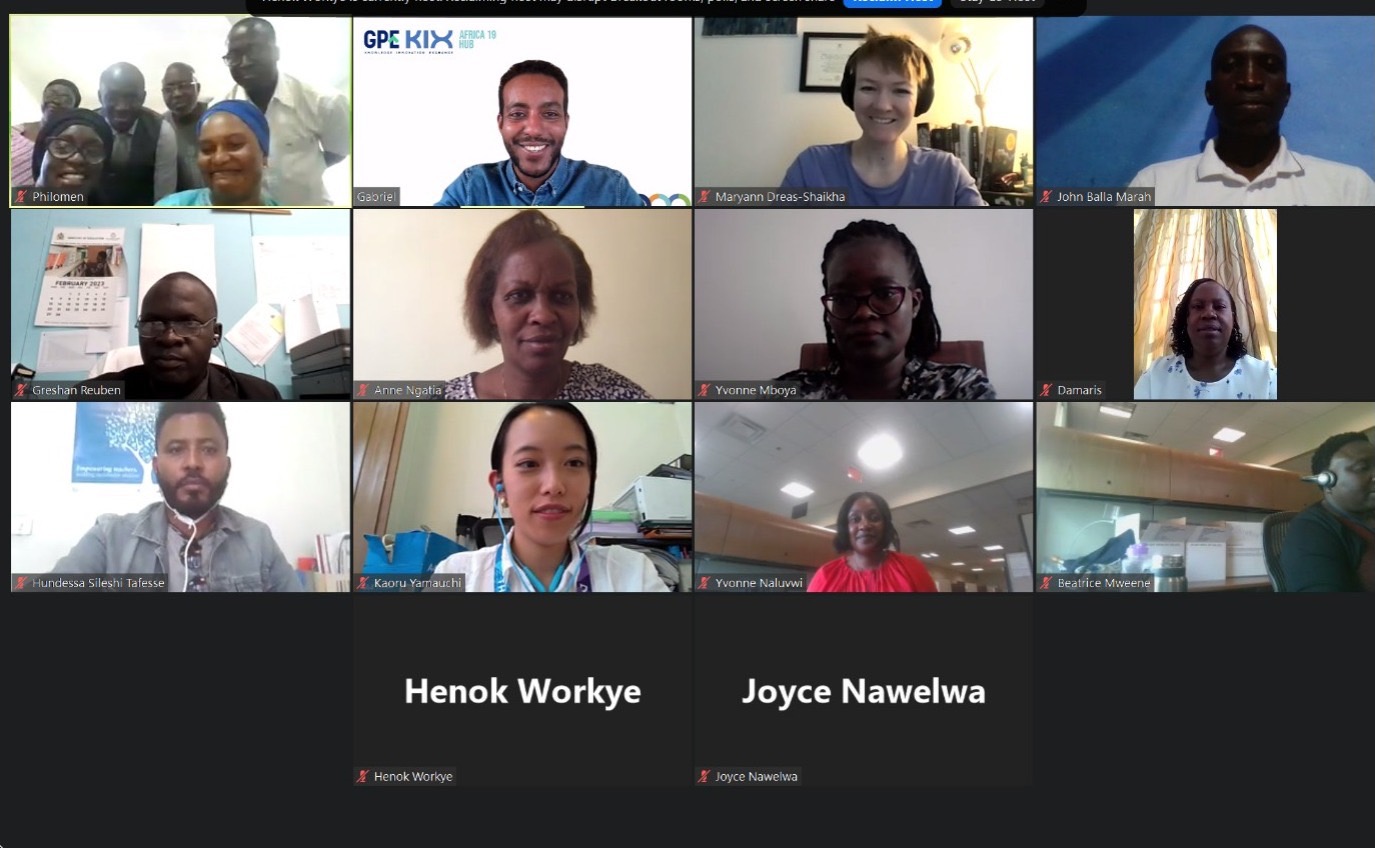 A few of the participants in the webinar.
A few of the participants in the webinar.
